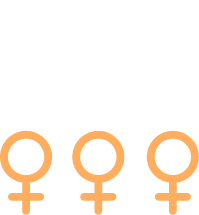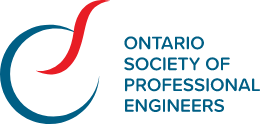Engineering’s culture of exclusion threatens the future of the profession.
Too many talented engineers are excluded from our profession.
While other regulated professions have begun the hard work to uproot systemic bias in their culture, training and licensure, too many of Canada’s engineering leaders are still debating whether or not issues of diversity and inclusion are just trends that will blow over.
The time has come for talking to stop and change to begin.
Leadership in Action: Ontario’s Association for the Whole Engineering Community
OSPE is a member-driven professional association that welcomes the entire engineering community to contribute knowledge, skills and leadership to help create a better future for our profession and society at large.
+2%

the dismal increase in the number of women working in engineering from 21% to 23% in the decade between 2005 – 2015 in Ontario.
+45%
of all international engineering graduates are underemployed in Ontario.


women in engineering experience harassment, discrimination or bullying at work.
+2%

the dismal increase in the number of women working in engineering from 21% to 23% in the decade between 2005 – 2015 in Ontario.
+45%
of all international engineering graduates are underemployed in Ontario.


women in engineering experience harassment, discrimination or bullying at work.

FIVE AREAS
In which the Ontario Fairness Commission identified system bias in engineering’s licensure process in 2018
- Local experience requirements were unreasonable
- Academic Requirement Committee assessors can conduct ad hoc secondary reviews
- Professional Practice Exam should be supported by psychometric analysis and reporting
- Current bias review processes were deemed inadequate
- Lack of timelines to respond to applicants’ requests
Get the Facts
How Bad is It?

Get this fact sheet on engineering’s diversity & inclusion challenges
The Engineering Community’s Voice

